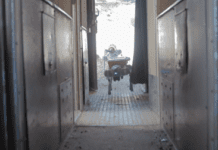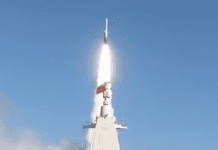This post is also available in:
 עברית (Hebrew)
עברית (Hebrew)
 One of the key elements threatening the success of the reforms and Yemen’s political stability is the struggle among the country’s elites, a struggle that became more extreme and even violent after the fall of Saleh’s regime. The Yemeni political system consists of a wide gamut of players and power groups competing amongst themselves for control of the political, security and economic power centers, in what they largely view as a zero sum game.
One of the key elements threatening the success of the reforms and Yemen’s political stability is the struggle among the country’s elites, a struggle that became more extreme and even violent after the fall of Saleh’s regime. The Yemeni political system consists of a wide gamut of players and power groups competing amongst themselves for control of the political, security and economic power centers, in what they largely view as a zero sum game.
The dominant figure in these struggles is the ousted president, Ali Abdullah Saleh, who received a full pardon in the transition of power and managed to retain much of his influence and control even after he left the presidential palace. Saleh and his family have many loyalists in key government and army positions including from the time Saleh had served as head of Yemen’s ruling party (of which President Hadi is also a member). In addition, Saleh controls a multi-branched network of contacts in the bureaucratic frameworks, religious institutions and tribal leaderships. Saleh and his loyalists are doing everything in their power to undermine the reforms and show that a stable Yemen is impossible without them. Dozens of army units loyal to Saleh have rebelled against their new commanders, and when Hadi sought to dismiss the air force commander, Saleh’s half-brother shut down Sana’a’s international airport.
Saleh is also seen by many as being behind a wave of terrorism and assassinations that, since 2011, have cost the lives of many government and army personnel (some even say that he secretly supports the Houthis’ rebellion in the north). Saleh’s subversive activities led the UN to impose personal sanctions (Resolution 2140) against persons attempting to damage the Yemeni reform program. While the resolution did not specify names, it was largely aimed at Saleh and his people.
At present, the threat of sanctions does not seem to moderate Saleh’s subversive activities. In June 2014, members of the presidential guard surrounded a mosque belonging to Saleh in southern Sana’a, claiming that it was being used to hide weapons and that a tunnel had been dug leading to the interior of the presidential palace, to facilitate a violent seizure of the center of Yemen’s governance.
Saleh’s main opponents in the struggle for power are his former allies who broke with him and are now seeking to consolidate their power and influence in the new Yemen. One important group is the al-Ahmar family, heading the Hashid federation, a large, powerful tribal coalition. The family has thousands of fighters at its disposal as well as a great deal of wealth, and it is working assiduously to solidify its power.
Another influential figure is General Ali Muhsen, the former commander of the 1st Army and a key official in Saleh’s regime. Although dismissed from his post by President Hadi, he still commands the loyalty of many powerful army personnel and wields considerable influence.
Another player is al-Islah, Yemen’s second largest political party and what passed for the official opposition to Saleh’s regime (in fact, its leaders were coopted by Saleh and cooperated with him behind the scenes). The party, made up of a coalition of the Muslim Brotherhood, tribal elements (including the al-Ahmar family) and salafi movements, is currently the president’s main coalition partner, working hard to expand its influence in the power centers of both the army and the government.
Register to iHLS Israel Homeland Security
Amidst all of these is the residing president, who was initially viewed as weak, though over time he has managed to establish his power and influence in the political system and the army. The additional year in office granted by the National Dialogue Conference positions him as the key person in forming the political structure of the Yemeni federation-in-the-making.
These players, all of whom cooperated with and were a part of the power structure of the old regime, are currently aggressively attempting to preserve and strengthen their power and influence in Yemen. It is unclear to what extent they care about the interests of the country and its people.
The center of gravity of the competing elites lies in the security forces. Even in Saleh’s time, Yemen’s army and security forces were never a homogeneous, professional institution, but rather a fragmented gathering of competing units serving as tools for political struggles between the various power groups. In the last years of Saleh’s regime, the main split in the security forces has been between those supporting Ahmed Ali Saleh, the commander of the Republic Guard and the former president’s son who was being cultivated as his heir, and the supporters of Ali Muhsen.
This rivalry became even more contentious during the protests, almost culminating in a dangerous clash between the Republican Guard and 1st Army forces. Each side recruited thousands of soldiers and tried to entrench its relative power. Though the split within the security forces did not end in widespread military clashes, the politicization of the army has been a constant threat against any attempt at reform and political change. Therefore, when he came to power, Hadi began to neutralize the power loci in the security forces and establish a professional, unified army subject to the civil government.
Hadi succeeded in exploiting the rivalries among the various army factions: making use of existing rounds of promotions, he transferred officers with rival political loyalties away from positions of command and influence. The height of the move was the dissolution of the Republican Guard and the 1st Army and assimilating those personnel in the ranks of other army units while dismissing Ahmed Ali Saleh and Ali Muhsen from their posts. The president also established new units and recruited thousands of soldiers to undermine the old elites.
Hadi has focused most of his effort on minimizing his predecessor’s influence. While he has gained some success doing so, it has also cost him dearly in terms of the Yemeni army’s operational capabilities. The Republican Guard and the 1st Army were Yemen’s military elite. They controlled the best equipment and included both the Special Forces and the anti-terrorism units, some of which received U.S. training. Their dissolution and replacement by new recruits means that Yemen is currently finding it hard to confront the terrorists and guerrilla organizations threatening the various parts of the country, including Sana’a.
At present, it seems that the struggle among Yemen’s elites and power groups is far from over. While Hadi has succeeded in weakening Saleh’s loyalists, his rivals accuse him of following in his predecessor’s footsteps, trying to wrest control of the army by inserting his loyalists into key command positions and recruiting soldiers primarily from among the ranks of al-Islah, his political ally.19 Furthermore, there are those within his own party who claim that, in his attempt to weaken Saleh, he is handing Yemen over to al-Islah.
Written by: Sami Kronenfeld and Yoel Guzansky

























